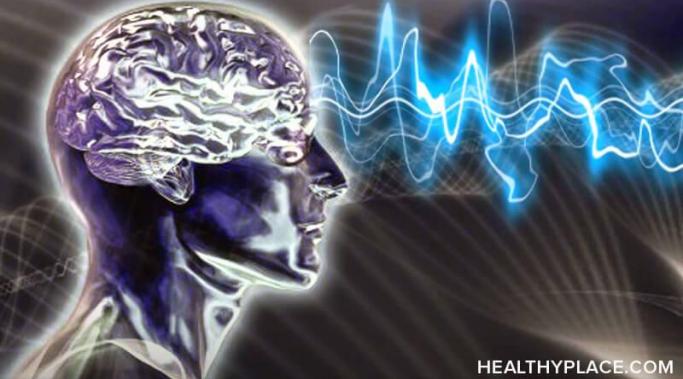Lying about depression is common when you're seriously depressed. This isn't so much on purpose; it's just what happens. People tend to not want to hear about depression, and to bend to their will, we lie about it. When seriously depressed, we often lie when we laugh, lie when we share what's happening in our lives and even lie when we smile. But is every smile a depression lie? Is lying about depression bad?
Breaking Bipolar
Never tell a person with depression to lighten up. Take my advice here, and just don't do it. There is an infinite number of things to say to a person with depression that is appropriate, but telling a person with depression to "lighten up" is not one of them.
The holidays are full of good things, but even these good things can cause bad bipolar moods. I know this might not make sense to some people -- after all, when something good happens, shouldn't that improve a person's mood? Well, this isn't exactly true if you have a serious mental illness like bipolar disorder. Yes, you might find good things improve your mood or you might find good things actually cause bad bipolar mood symptoms. Read on to learn more.
Sometimes we can't feel thankful over the holidays. And by that, I don't mean that we don't have things to be thankful for, I mean we literally can't feel that thankfulness. This could be for many reasons. You might not be able to feel thankful because of mental illness, because of grief and bereavement or for many other reasons. I want to say, this is okay. I get it. But that doesn't mean it isn't hard. Here's what to do if you can't feel thankful over the holidays.
Rejection just because you have bipolar disorder sucks. Even I, who have been publically bipolar for almost a decade still find it hurtful when someone rejects me because of my bipolar disorder. I know that rejection hurts everyone, but I think many people would be amazed at how hurtful it is to be rejected because of something that isn't your fault and that you can't control. It's like being rejected because of your height or your mother tongue -- these are things that are just part of you and being rejected because of them feels incredibly, personally painful.
It's normal to ask, "Why me?" when you have bipolar disorder. And while some people may see this as just feeling sorry for yourself, it's much more than that and it is very normal. It's certainly a question I have asked. So let's delve into the question of "why me" with bipolar disorder.
Sometimes our loved ones don't believe in mental illness. This is a sad, but all-too-common, situation. When anyone gets sick, with any illness, we look to our spouse, friends, family and other loved ones to support us. We need them in these tough times. This is normal. But what if your loved ones aren't there for you because your loved ones don't believe in mental illness? Here are some suggestions for what you can do if this happens to you.
I've been considering the idea that suicide attempts are underreported. The theory of this is simple, the only way a suicide attempt gets reported is if a person gets medical help for it and admits to it but how many people have attempted suicide and not gotten medical help for it or have denied that it was a suicide attempt? I know one person -- me. I didn't get help for my suicide attempt. My attempt isn't part of the statistics about suicide attempts in bipolar disorder. So are suicide attempts underreported in general? (Note: This post contains a trigger warning.)
My bipolar brain works best at a certain time of day. This is actually common for people with bipolar disorder. People with bipolar commonly find their mood and ability to think waxes and wanes at the same times throughout the day. Your average person may experience this as well, but for a person with bipolar, of course, everything is amplified. So here's when my bipolar brain works best for different purposes.
If you can't make decisions because of depression, you're not alone. Not being able to make decisions (indecisiveness) is actually a symptom of depression. People don't tend to talk about it, but that doesn't mean it isn't a huge problem for people. In fact, I've had people literally beg me to help them make decisions because they are feeling so debilitated from depression. I've written about making decisions before and how you might go about it, but today, I want to focus on one particular coping technique that I use every day to mitigate an inability to make decisions because of depression.









